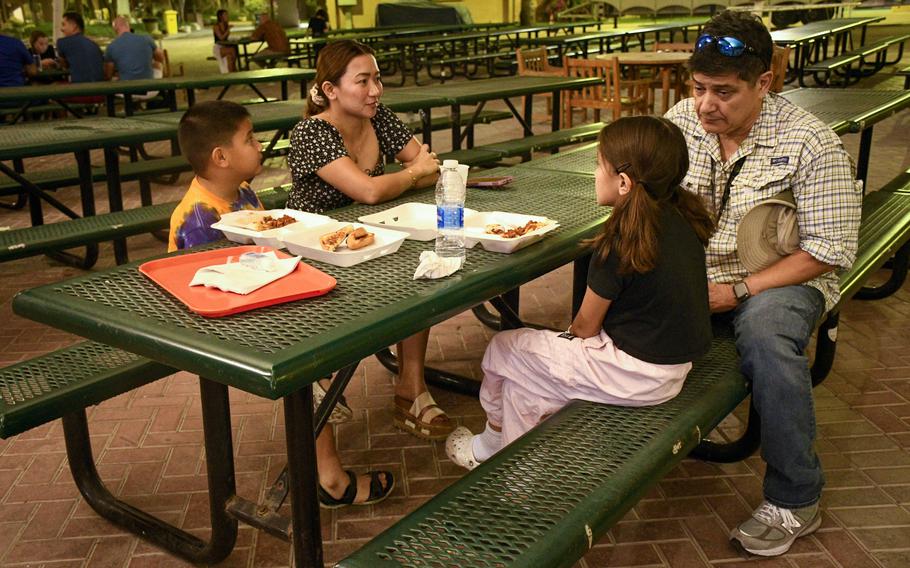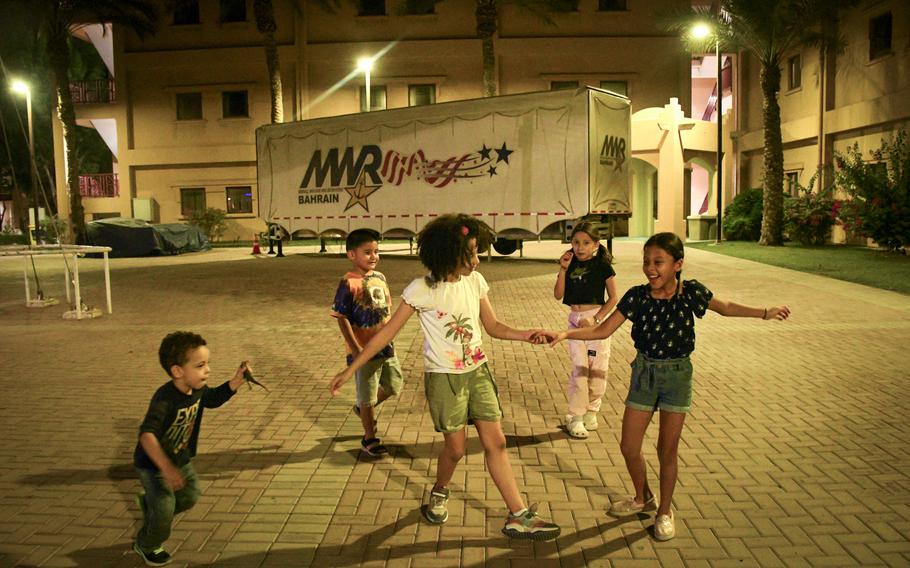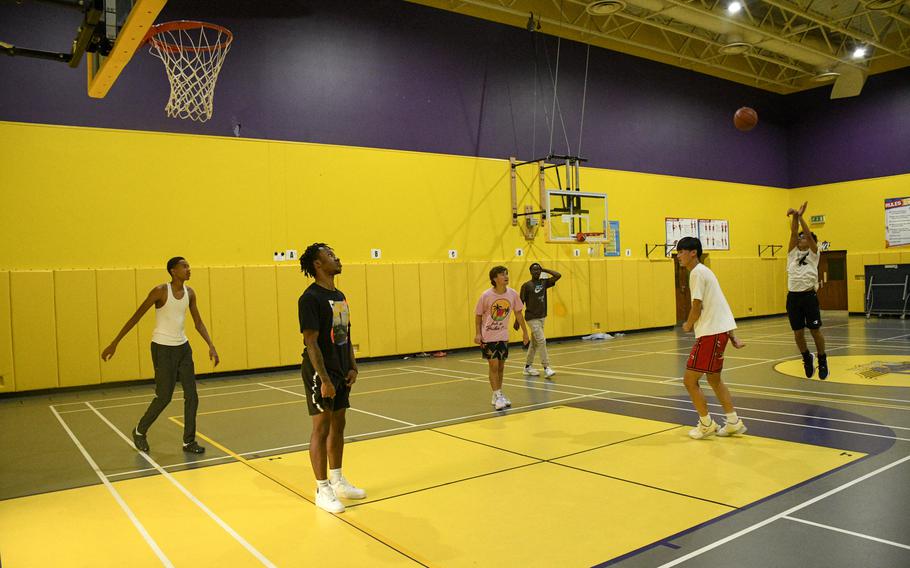
The Taylor family attends a Morale, Welfare and Recreation event at Naval Support Activity Bahrain, Nov. 16, 2023. Attendance at events on base have increased because of restrictions on troops and family members going off base, which followed the outset of the Israel-Hamas war. (J.P. Lawrence/Stars and Stripes)
NAVAL SUPPORT ACTIVITY BAHRAIN — A security sign at the gates of this key American naval base in the Middle East reflects how heightened regional tensions are affecting the 7,600 troops and 1,200 family members stationed here.
The sign designates “Force Protection Condition Charlie,” a status that means increased measures due to fears of terrorist action or targeting.
The security posture was changed after the Israel-Hamas war began Oct. 7 and isn’t due to a specific threat, multiple U.S. naval officials said.
The base in densely populated Bahrain hasn’t been targeted by the various Iran-backed militant groups who have attacked U.S. troops in Iraq and Syria, mostly at remote locations. At least 66 attacks have come since the war began, with 62 U.S. personnel injured.
But the Navy’s security measures in Bahrain do come with restrictions on where troops and their families can eat, gather and enjoy themselves. As routines change and outlets for relaxation diminish, base officials say they’ve seen a rise in demand for counseling and services that help people cope with added stress and fears of growing conflict.
“I see a lot of questions, people are asking what is going on,” said Clara Schuler, director of The Fleet and Family Support Center. “I see more, day-to-day, ‘I’m stressed because I don’t deal well with the unknown,’ basically.”

Children accompanying troops and civilians deployed to Naval Support Activity Bahrain play on base on Nov. 16, 2023, amid off-base travel restrictions in the wake of the Israel-Hamas war. (J.P. Lawrence/Stars and Stripes)
Religious services are now better attended, said Chaplain Leroy Young, a Navy captain. Muslim prayer services have become so popular in recent weeks that another location may soon be needed, and Latter-Day Saints services are now offered.
“We are adapting to the new normal that is here,” Young said.
There haven’t been any protests near the base in Bahrain, which is strictly controlled by its ruling family. But Americans are aware of the anger many in the Arab world feel over U.S. policy following Oct. 7, when Hamas tortured and killed 1,200 people in Israel. Washington has stood by Israel in the midst of strikes that have left thousands dead in Gaza.
Troops and families are advised to “make smart decisions” and avoid unnecessary travel, said Lt. j.g. Bryan Blair, a base spokesman.
Eating at restaurants isn’t allowed for now, so brunch at local cafés, a staple of base life in Bahrain, has been replaced by dinner parties, Blair said.
Other changes included the homecoming dance, normally held in a Manama hotel, being held at the base school. Some students were unable to play intramural sports off-base, and tours at the city market were canceled.

Members of the boys high school basketball team in Bahrain practice on Nov. 16, 2023. The homecoming dance for the high school this year took place on-site instead of in a hotel in Manama, due to security restrictions. (J.P. Lawrence/Stars and Stripes)
Troops and family members can shop for takeout food, groceries and essentials. They can also get haircuts in town, Blair said. And personnel continue to live off base and commute each day.
Meanwhile, packs of off-duty sailors still roam “American Alley,” the row of fast-food restaurants and hotels next to the base, albeit in smaller numbers.
Families said they have adjusted to the restrictions by keeping their kids occupied on base.
Garrettson and Nancy Taylor took their two children, O’Lynnrae, 9, and Grant, 7, to a cookout organized by Morale, Welfare and Recreation last week. The family also now goes to movies in the Navy theater, instead of in Manama.
Garrettson Taylor, a government civilian involved in ship maintenance, said he’s not fazed by current tensions due to his experience living in Bahrain in 2020, when America and Iran clashed after the U.S. assassination of Iranian general Qassem Soleimani.
O’Lynnrae Taylor said she was well aware of the Israel-Hamas war. Nevertheless, her father said he tries to shield his kids from the tensions.
“The news stays off at home,” he said.